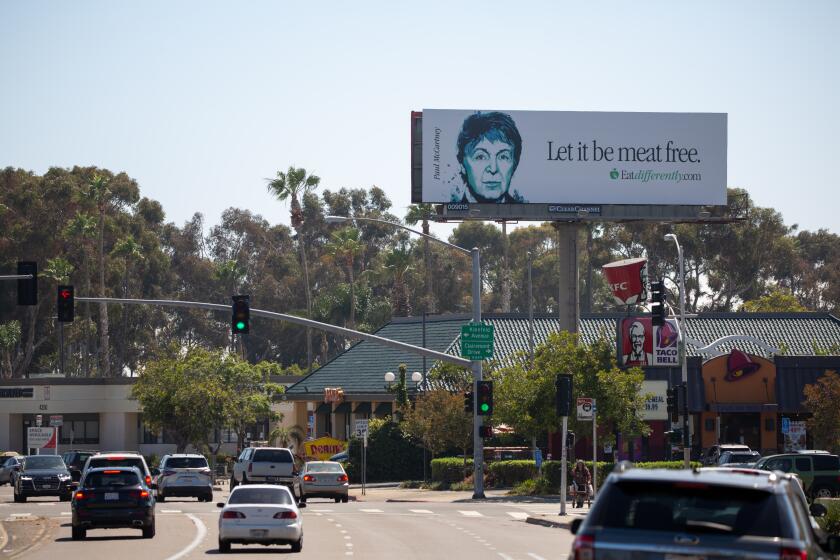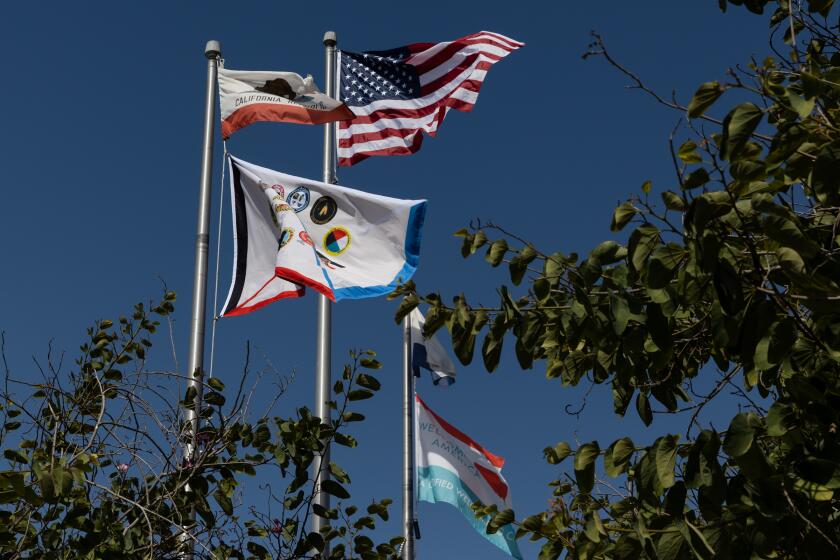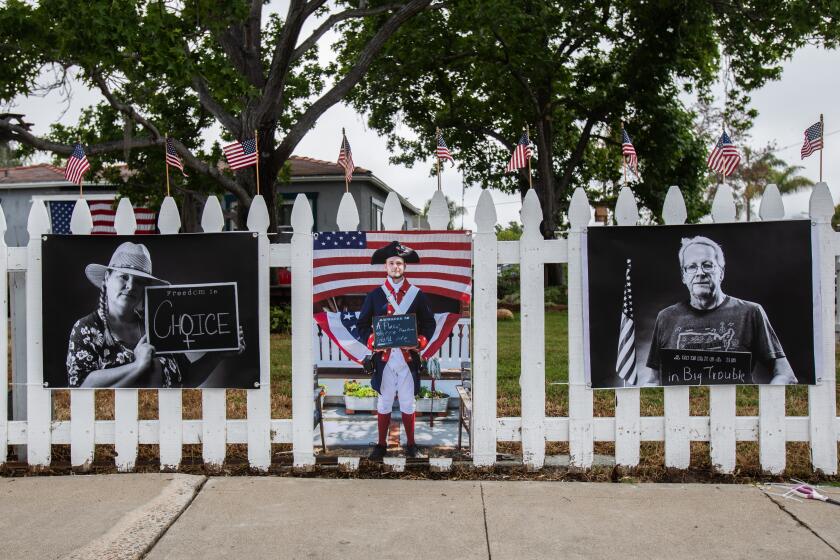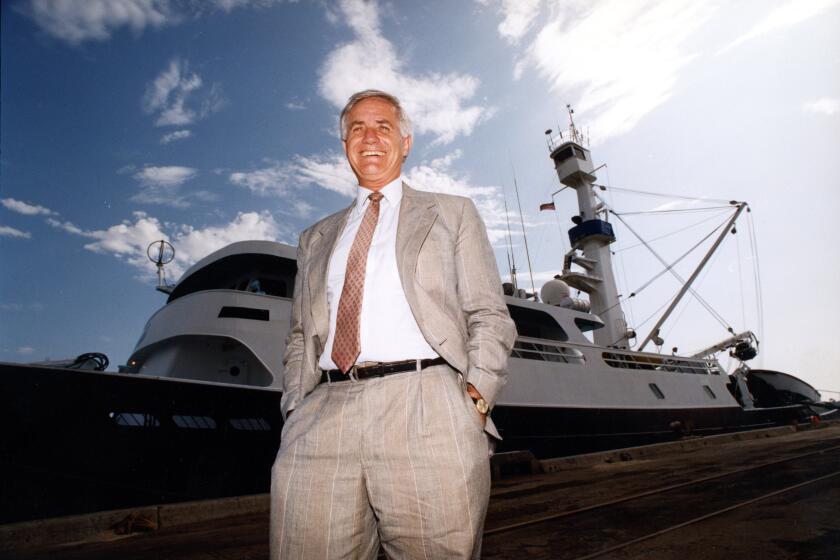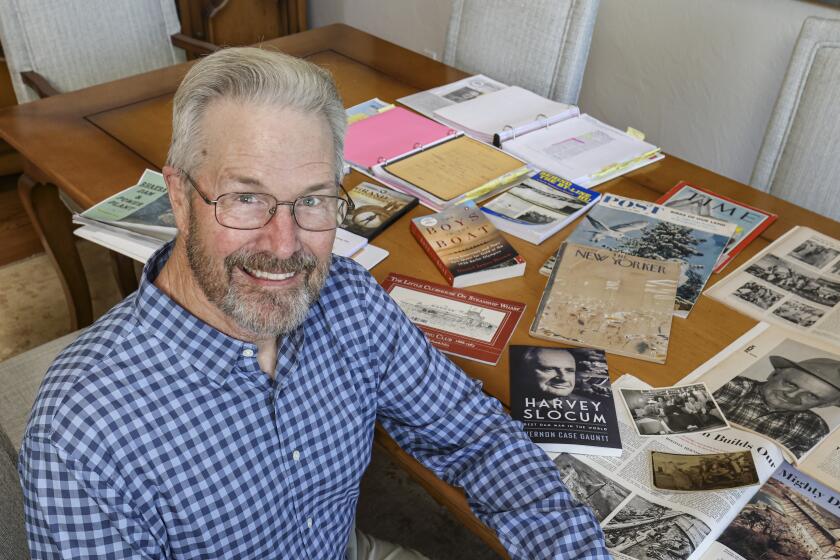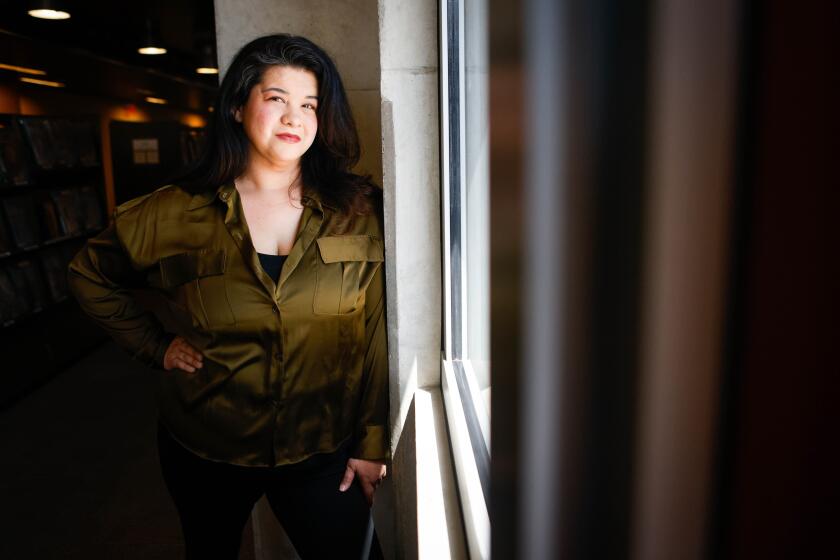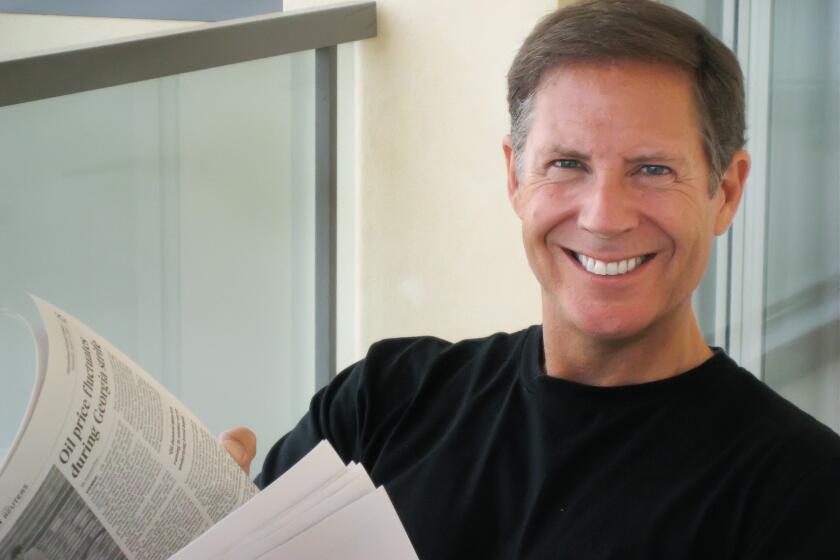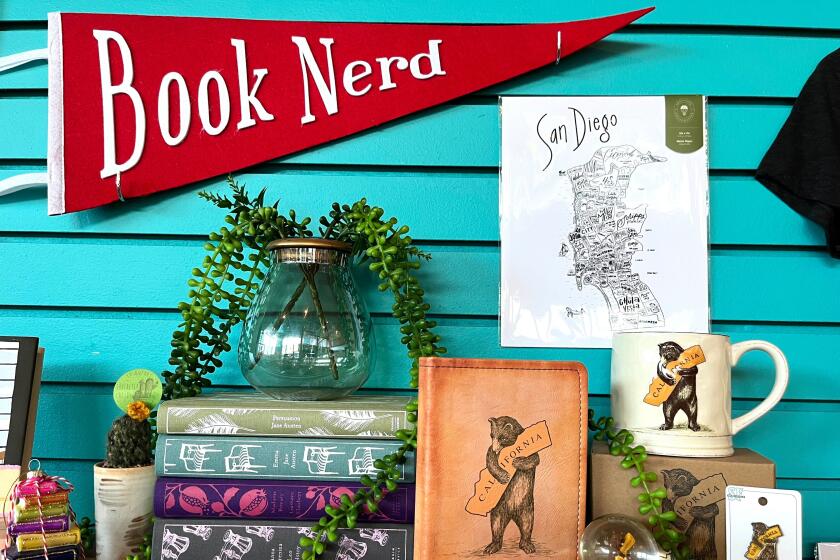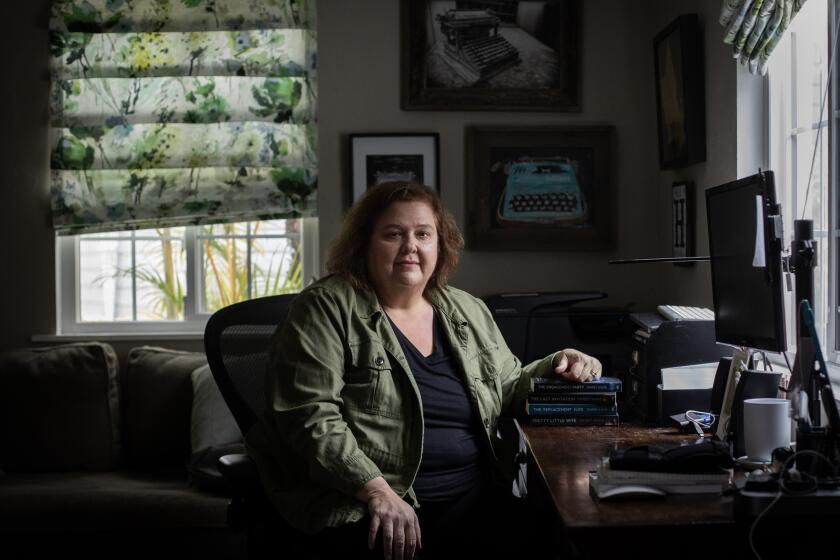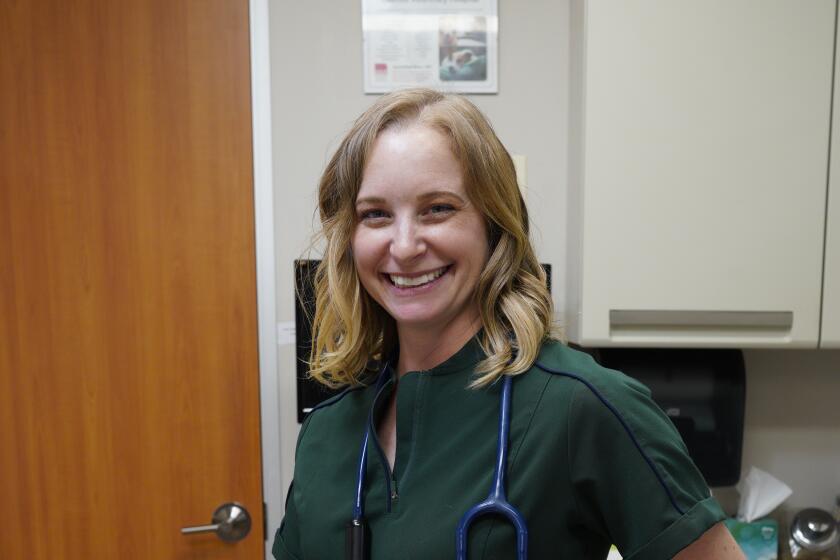Love in the land of icebergs
“My Last Continent,” the debut novel by former San Diegan Midge Raymond, is about two penguin researchers drawn to Antarctica, and then to each other. It’s an otherworldly place increasingly popular among tourists, who don’t always arrive on ships built to navigate the ever-shifting ice.
Raymond, who lives in Oregon, will be at Warwick’s at 7:30 p.m. Thursday.
Q: Why Antarctica?
I was inspired by a trip I took there in 2004. While I was on this expedition, a lot of the naturalists were talking about the larger cruise ships that were starting to venture down into the Antarctic peninsula. They were alarmed by the size of these ships. With thousands of passengers in such a remote area, and with unpredictable weather and a lot of ice and hulls that weren’t reinforced — if something happened, it would be a complete disaster because there aren’t enough resources for rescues.
That sparked my imagination as a writer, and three years later, in 2007, a small ship hit ice and sank in Antarctica. The boat was small, there were only about 100 passengers, the weather was calm, and there was another ship nearby. Everyone was rescued, and it turned out fine. But if the conditions were any different, it could have been an entirely different outcome.
I wrote a short story right after returning from the continent, and the character in it, Deb, stuck with me. I thought about it off and on over the years. I hunkered down and started working on it pretty actively in 2012, which was shortly after the Costa Concordia happened (the Italian cruise ship that ran aground, killing 32 people). When I saw that I said, “I have to write this novel.”
Q: What is it about Antarctica that makes it a good setting for a love story?
A: The character of Deb is a loner, and she’s been unlucky in love. She’s very passionate about animals and the environment, and she feels quite at home there. It’s a place that’s unlike anywhere else on Earth. And I think for people like Deb who don’t feel as if they fit in, it’s the perfect spot. It’s very isolated. But it’s also hard to have a relationship when you are going off to Antarctica all the time.
But when she meets a person there who has discovered Antarctica for similar reasons — Keller’s had a tragedy in his past that left him a little lost and unmoored — they bond. Antarctica is very much a third person in the relationship because it’s such a huge part of who they are.
Q: Penguins are characters in the book, too. Did you have an experience with penguins on your own trip, or was there something about the way they bond that spoke to you?
A: A little of both. I loved watching the penguins when I was in Antarctica. It’s a wonderful thing to be able to sit down on a rock and watch them go about their day. They are amazing creatures. They work so hard to survive. And watching them reunite with their mates — they are quite romantic if you want to anthropomorphize them. You look at them and think, they are so sweet.
And then a couple of years after Antarctica, I had the opportunity to volunteer in Patagonia with a research team. My husband and I stayed in a trailer with a penguin who nested underneath and would wake us up at dawn every morning. You just walked around all these penguins as you counted them and their eggs. So I got a feel for the life of a researcher, too, which was very, very helpful.
I began to consider my role in the environment because everything we do up here in the north affects the penguins down south. I became much more of an environmentalist. My husband and I co-founded a small press, which publishes environmental literature. It was really a life-changing experience, both going to Antarctica and spending time with the penguins in Argentina.
Q: How do you toe the line between raising those concerns and making it feel like a sermon?
A: That is the hardest thing when it comes to environmental literature. How do you take a stand? How do you educate without sounding like you are doing just that? My first order of business was to write a good story and create a story that people would want to read.
I think the way to bring it up is through character. Deb has always been passionate about the penguins, the environment and the continent, and she is a bit cranky about it all, too. Then you have Keller, who becomes more and more adamant that no one should come to Antarctica. Deb argues that if you cut people off, they’ll never learn how important this is. So there’s a fine balance.
Q: A couple of the characters are also wrestling with motherhood. What drew you to that?
A: I’ve always been interested in that because it comes up constantly in our society. How as women do we balance motherhood with the careers we want to have? I think it’s particularly challenging for women in science like Deb who have to travel so far away for great lengths of time.
I was also interested in one of the other characters in the novel who doesn’t have quite the same life. She could stay at home or she could work. She doesn’t travel as much so she could manage it. But it’s also about choice. For me, it’s important to create characters who wrestle with these issues.
Q: I think the last time you and I spoke was when you were doing a workshop in San Diego on how writers should deal with rejection. Do you have any interesting rejection stories involving this book?
A: The book was so long in the making, and when I finally finished it, I approached an agent I admired, whose authors I admire, and I sent it off to her. She rejected it, but it was the most wonderful rejection I have ever received, because she seemed really interested and really passionate about it.
She said, “Why don’t you do this with the story?” I wrote her back and we started a dialogue and she invited me to send it back if I ever did a revision. Because I really loved her comments, I did do a revision and she loved the next version and we went on from there.
One of the most important things for writers to know is when you get a good rejection, a thoughtful rejection with comments that show someone has read your book carefully and understood it, that is as close to an acceptance as you can get. Writers should always engage that agent or editor and see where it might lead. It my case, it led to great things and I feel very fortunate.
Get U-T Arts & Culture on Thursdays
A San Diego insider’s look at what talented artists are bringing to the stage, screen, galleries and more.
You may occasionally receive promotional content from the San Diego Union-Tribune.

